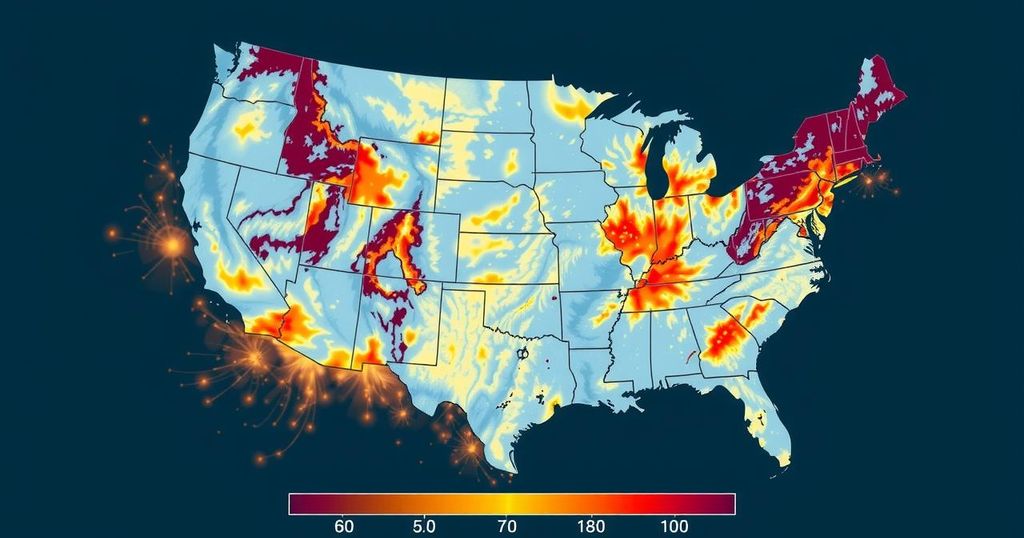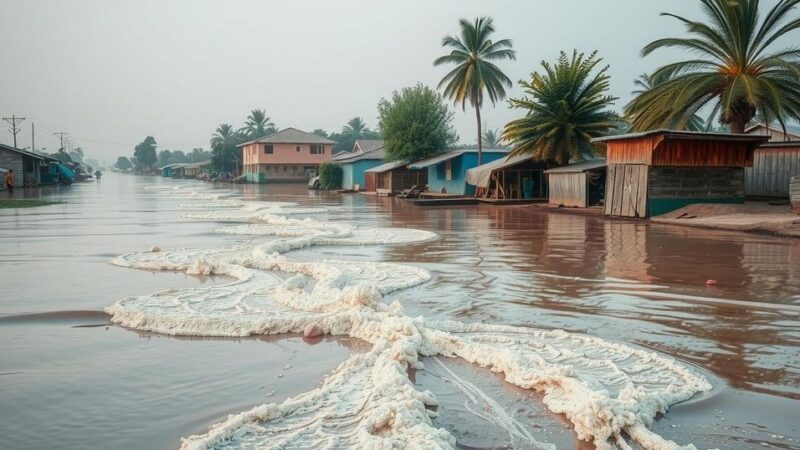Since the 1980s, the area of land affected by drought has tripled, with 48% of the Earth’s land experiencing at least one month of extreme drought last year, while 30% faced extreme drought for three months or longer in 2023. Concurrently, health risks from food insecurity and increased diseases have significantly risen, emphasizing the urgent need for action against climate change related crises.
A recent study indicates that the scale of land affected by drought has increased dramatically since the 1980s, with the area experiencing severe drought conditions rising threefold. Data revealed by the Lancet Countdown on Health and Climate Change shows that last year, 48% of the Earth’s terrestrial surface faced at least one month of extreme drought, a significant increase from an average of only 15% during the 1980s. Moreover, approximately 30% of the global population experienced extreme drought for a duration of three months or longer in 2023, compared to a mere 5% in the past. The report highlights the urgent threat posed by drought, which has a multitude of negative outcomes such as compromising water and sanitation, food security, public health, and even energy and transportation infrastructures. The synchronization of various factors, including natural weather events and anthropogenic land use, complicates the direct causes of drought. However, climate change is undeniably affecting global rainfall distribution, increasing the risk and prevalence of drought, especially in vulnerable regions like South America, the Middle East, and the Horn of Africa. Furthermore, the increase in drought incidents is exacerbated by a concurrent rise in extreme rainfall, affecting over 61% of the world in the last decade compared to a baseline average from 1961 to 1990. The interplay between escalating temperatures, evaporation rates, and changes in rainfall patterns creates a complex relationship that leads to both more intense droughts and floods. The health repercussions of these climate changes are alarming. The Lancet Countdown report indicates that an additional 151 million individuals faced food insecurity in 2022 relative to the 1990s, contributing to widespread malnutrition. Additionally, heat-related fatalities in individuals over 65 have surged by 167% since the 1990s, and the distribution of mosquito-borne diseases has expanded into new territories. In regions like Syria and South Sudan, extreme drought coupled with erratic rainfall patterns has led to severe water shortages, compounding humanitarian crises. Residents are struggling to access clean water and adequate nutrition, while the agricultural sector suffers from both drought and flooding events, further threatening food security. Experts warn that without urgent measures to reduce greenhouse gas emissions and mitigate rising global temperatures, the frequency and severity of droughts and flooding will continue to escalate. Marina Romanello, executive director of the Lancet Countdown, states, “The climate is changing fast.”
The increasing prevalence of drought worldwide is a pressing issue tied closely to the overarching challenge of climate change. The effects of climate change, such as rising temperatures and shifting rainfall patterns, have profound implications for the environment, public health, and global food security. The current study sheds light on the alarming trends in drought conditions, emphasizing the necessity of addressing the environmental crises exacerbated by climate-related changes.
The findings of the Lancet Countdown study reveal an alarming escalation in the frequency and severity of drought conditions globally, with substantial implications for food security, public health, and the environment. Clear patterns illustrate a significant rise in areas affected by drought compared to the 1980s, coupled with intensified health risks due to increased food insecurity and the spread of diseases. These developments underline the critical need for immediate action to mitigate climate change and adapt to the increasing challenges posed by environmental shifts.
Original Source: www.bbc.co.uk







